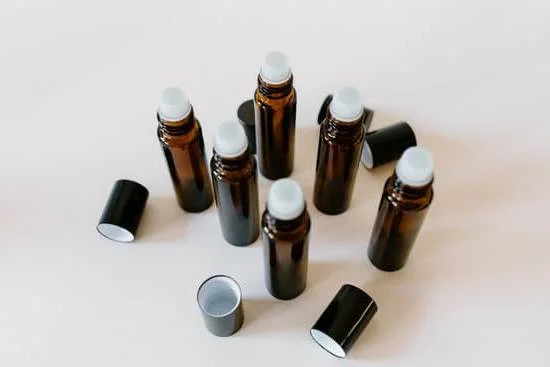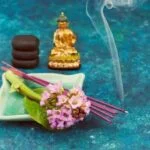Aromatherapy has been used for centuries as a holistic approach to promoting well-being and relaxation. And at the heart of this practice lie organic essential oils, derived from various aromatic plants and flowers. These organic essential oils have gained popularity not just for their pleasant fragrance, but also for their therapeutic properties that can enhance our physical and mental health.
In this article, we will delve into the world of aromatherapy organic essential oils, exploring their benefits and how they can positively impact our overall well-being. We will uncover the science behind aromatherapy and understand how essential oils interact with our senses and mind. Additionally, we will debunk common misconceptions surrounding aromatherapy organic essential oils and provide accurate information.
Choosing organic options when it comes to essential oils is crucial for those who seek a natural and clean approach to self-care. Through this article, we will explore the specific benefits of using organic essential oils in aromatherapy and why they are superior compared to non-organic alternatives. From lavender to peppermint to eucalyptus, we will take a closer look at different types of aromatherapy organic essential oils and how they can be integrated into our daily routines.
So join us on this journey as we unravel the world of aromatherapy organic essential oils – discover their therapeutic potential, learn how to incorporate them into your daily routine, and embrace a holistic lifestyle that promotes both physical health and emotional well-being.
Understanding the Power of Aromatherapy
Aromatherapy, the practice of using natural plant extracts known as essential oils, has been used for centuries to improve physical and mental well-being. Essential oils are highly concentrated liquids that contain volatile aroma compounds from plants. When inhaled or applied topically, these oils can have various effects on our mind and body.
Essential oils have the power to impact our well-being in several ways. Firstly, they can stimulate the limbic system, which is the part of our brain that controls emotions and memories. This stimulation can evoke positive feelings and improve mood. For example, lavender essential oil is known for its calming properties and can help reduce anxiety and promote relaxation.
Additionally, certain essential oils have antimicrobial properties that can help boost the immune system and protect against harmful bacteria and viruses. Tea tree oil, for instance, is commonly used as a natural disinfectant due to its powerful antimicrobial effects.
Moreover, aromatherapy essential oils can also have physical benefits when applied topically. Peppermint oil, for instance, has analgesic properties that make it effective in relieving headaches and muscle pain.
Incorporating aromatherapy organic essential oils into your daily routine can be beneficial for your overall well-being. Whether you diffuse them in your home, incorporate them into your skincare routine, or add them to a relaxing bath, these oils offer a natural way to support a healthy lifestyle.
| Effects | Example |
|---|---|
| Calming | Lavender |
| Antimicrobial | Tea Tree |
| Analgesic | Peppermint |
The Benefits of Using Organic Essential Oils in Aromatherapy
Organic essential oils have gained popularity in recent years due to their numerous benefits in aromatherapy. When it comes to choosing essential oils for aromatherapy, opting for organic options can provide additional advantages. In this section, we will explore the benefits of using organic essential oils in aromatherapy and why they should be preferred over non-organic alternatives.
- Environmental Sustainability: One of the main reasons to choose organic essential oils is their positive impact on the environment. Organic farming practices prohibit the use of synthetic fertilizers, pesticides, and herbicides, which reduces the overall chemical load on the soil and water systems. By supporting organic agriculture, you contribute to conserving biodiversity and promoting a healthier ecosystem.
- Chemical-Free Formulations: Organic essential oils are produced without the use of synthetic chemicals, ensuring that you are not exposed to harmful toxins when using them in aromatherapy. Non-organic options may contain traces of pesticides or other chemicals used during cultivation or extraction processes. Using organic essential oils gives you peace of mind knowing that you are inhaling pure and natural aroma compounds.
- Potency and Therapeutic Benefits: Organic essential oils are often considered to be higher in quality compared to non-organic options. This is because they are derived from plants grown in nutrient-rich soils without artificial enhancements. As a result, organic essential oils tend to offer more potent therapeutic benefits due to their higher concentration of active compounds.
| Benefits of Using Organic Essential Oils | Reasons |
|---|---|
| Environmental Sustainability | Supports organic farming practices and reduces chemical load on the environment |
| Chemical-Free Formulations | Avoids exposure to synthetic chemicals present in non-organic options |
| Potency and Therapeutic Benefits | Higher concentration of active compounds for enhanced therapeutic effects |
Exploring Different Types of Aromatherapy Organic Essential Oils
Organic essential oils are a key component of aromatherapy, offering a wide range of therapeutic benefits for both physical and emotional well-being. When it comes to exploring different types of aromatherapy organic essential oils, there is an abundance of options to choose from. Here are some commonly used organic essential oils and their specific benefits:
- Lavender: This versatile oil is known for its calming and soothing properties. It can help promote relaxation, reduce stress and anxiety, improve sleep quality, and even relieve headaches.
- Peppermint: Known for its invigorating scent, peppermint oil can help boost energy levels and enhance mental clarity. It is also effective in alleviating digestive issues such as bloating and nausea.
- Eucalyptus: With its refreshing aroma, eucalyptus oil is commonly used to alleviate respiratory problems such as congestion and sinusitis. It can also promote mental focus and provide relief from muscle soreness.
- Tea Tree: This powerful antibacterial oil is often used in skincare products due to its ability to fight acne-causing bacteria. It can also be beneficial in treating fungal infections and soothing skin irritations.
- Lemon: With its uplifting citrus fragrance, lemon oil is known for its mood-enhancing properties. It can help boost concentration, improve immune function, and even aid in detoxification.
- Rosemary: This stimulating oil has been found to enhance memory retention and cognitive performance when used in aromatherapy. It can also relieve muscle pain and stimulate hair growth when applied topically.
- Chamomile: Widely recognized for its calming effects on the nervous system, chamomile oil promotes relaxation while reducing symptoms of anxiety or insomnia. It can also soothe skin irritations and promote healing.
When choosing aromatherapy organic essential oils, it’s important to look for high-quality options that are pure and free from synthetic additives or chemicals. To ensure the best quality, look for oils that are certified organic and sourced from reputable suppliers. Additionally, consider the specific properties and benefits of each oil to determine which ones align with your needs and preferences.
Whether you’re seeking relaxation, mental clarity, respiratory support, or rejuvenation, there is an aromatherapy organic essential oil to suit your needs. By exploring different types of oils and experimenting with various blends, you can discover the transformative power of aromatherapy in enhancing your overall well-being.
How to Incorporate Aromatherapy Organic Essential Oils into Your Daily Routine
Diffusing Essential Oils
One of the simplest and most effective ways to incorporate aromatherapy organic essential oils into your daily routine is by using a diffuser. A diffuser disperses the essential oils into the air, allowing you to breathe in their therapeutic scents. To use a diffuser, fill it with water and add a few drops of your chosen essential oil or blend.
Turn on the diffuser and let it work its magic as it fills your space with a pleasant aroma. Experiment with different oils to find scents that align with your mood and desired benefits.
Topical Application
Another popular way to use aromatherapy organic essential oils is through topical application. Essential oils can be diluted in a carrier oil, such as coconut oil or sweet almond oil, before being applied directly to the skin. This method is commonly used for massage or targeted applications like pulse points or sore muscles.
When applying essential oils topically, always perform a patch test on a small area of skin first to check for any potential allergies or sensitivities. Remember that some essential oils may require further dilution due to their potency.
Inhalation Techniques
Inhalation is another effective way to incorporate aromatherapy organic essential oils into your daily routine. You can simply inhale the scent directly from the bottle or place a few drops of oil onto a tissue or handkerchief for sniffing throughout the day.
Alternatively, you can try steam inhalation by adding a few drops of essential oil to hot water and breathing in the steam while covering your head with a towel. These inhalation techniques can provide immediate relief for respiratory issues or help uplift your mood when feeling down.
Creating Personalized Blends
To make your aromatherapy experience more tailored to your specific needs and preferences, consider creating your own personalized essential oil blends. You can mix different oils together to achieve a desired scent or combine oils with complementary properties for enhanced therapeutic benefits. Experiment with various combinations and ratios until you find the perfect blend that resonates with you. Keep track of your recipes so you can recreate your favorite blends in the future.
By incorporating aromatherapy organic essential oils into your daily routine using these tips and techniques, you can experience the many benefits that they offer. Whether you choose to diffuse them, apply them topically, inhale their scents, or create your own blends, there are numerous ways to incorporate these oils into your holistic lifestyle. Remember to always follow safety precautions and guidelines when using essential oils to ensure a safe and enjoyable experience.
The Science Behind Aromatherapy
Aromatherapy is not just about pleasant scents, but also the science behind how essential oils interact with our senses and mind. When we inhale essential oils, their molecules enter the nose and bind to olfactory receptors, sending signals to the brain. These receptors are directly connected to the limbic system, which is responsible for emotions, memories, and behavior.
One of the key components of aromatherapy is the concept of inhalation. Inhaling essential oils stimulates our olfactory system, triggering certain reactions in our bodies. For example, inhaling lavender essential oil can promote relaxation and reduce feelings of stress and anxiety. Peppermint essential oil has a cooling effect when inhaled and can help alleviate headaches and nausea. Eucalyptus oil has been known to support respiratory health when used through inhalation.
In addition to inhalation, aromatherapy also utilizes topical application. When essential oils are applied to the skin, they can be absorbed into the bloodstream and have systemic effects on the body. Topical application allows for a more localized effect as well. For instance, applying diluted lavender oil onto temples or wrists can help promote calmness and improve sleep quality.
Investigations have shown that different essential oils have unique chemical compositions that contribute to their therapeutic properties. Their molecular structures determine their volatility, which affects how quickly they evaporate into the air or absorb into the skin. This volatility impacts both their aroma and their potential physiological effects.
Overall, understanding the science behind aromatherapy helps us appreciate its effectiveness as a holistic wellness practice. By harnessing the power of scent and molecules, essential oils have the ability to positively impact our well-being by influencing our senses and mind. Whether it’s through inhalation or topical application, incorporating aromatherapy into our daily lives can provide numerous benefits for both our physical and mental health.
- Essential oils interact with olfactory receptors in the nose.
- The olfactory system is directly connected to the limbic system, responsible for emotions and memories.
- Inhalation and topical application are two common methods of using essential oils in aromatherapy.
- Different essential oils have unique chemical compositions that contribute to their therapeutic properties.
- Understanding the science behind aromatherapy helps appreciate its effectiveness as a holistic wellness practice.
Exploring Different Applications of Aromatherapy Organic Essential Oils
Aromatherapy organic essential oils can be used in a variety of ways to promote well-being and enhance your daily routine. Some popular applications of these oils include massage, bathing, inhalation, and more. Each application method offers unique benefits and can be tailored to your individual preferences and needs.
One common way to use aromatherapy organic essential oils is through massage. When combined with a carrier oil, such as almond or coconut oil, the essential oils can be applied directly to the skin during a massage. This allows for easy absorption into the body, delivering the therapeutic properties of the oils directly to the muscles and tissues. Massage with essential oils can help relax muscles, alleviate tension and stress, improve circulation, and promote overall relaxation.
Another popular application method is adding aromatherapy organic essential oils to your bath. By adding a few drops of your chosen oil to warm bathwater, you can create a relaxing and rejuvenating experience. The steam from the bath will allow the scent of the oil to waft through the air, promoting feelings of relaxation and calmness. Additionally, when combined with the warm water, these oils can be absorbed through the skin, providing their therapeutic benefits throughout your entire body.
Inhalation is another effective way to experience aromatherapy organic essential oils. You can simply breathe in the scent directly from an open bottle or add a few drops of oil to a diffuser or humidifier for continuous inhalation throughout the day or night.
Inhaling essential oils stimulates the olfactory system in our brain, which is connected to our emotions and memories. This interaction between scent and our brain can have powerful effects on our mood, mental clarity, relaxation levels, and overall well-being.
Overall, there are numerous applications for aromatherapy organic essential oils that can enhance your daily life. Whether it’s through massage, bathing, or inhalation, incorporating these oils into your routine can provide various physical and emotional benefits. It’s important to note that different oils may have different effects, so it’s essential to do research or consult with a certified aromatherapist to determine which oils are best suited for your needs and preferences.
Common Misconceptions about Aromatherapy Organic Essential Oils
Aromatherapy organic essential oils have gained significant popularity in recent years, with many people turning to these natural remedies for their therapeutic benefits. However, along with this rise in popularity comes several misconceptions and myths surrounding aromatherapy and organic essential oils. In this section, we will debunk some of the most common misconceptions and provide accurate information to help you make well-informed decisions about using these oils.
- Myth: Aromatherapy organic essential oils are a cure-all solution.
- Fact: While organic essential oils can be incredibly beneficial for various health concerns, it is important to understand that they are not a cure-all solution. Each oil has its own specific properties and uses, and they should be used as complementary therapies alongside conventional medical treatments.
- Myth: All organic essential oils are safe to use internally.
- Fact: Not all essential oils are safe for internal use. Some oils can be toxic if ingested or may cause adverse reactions. It is crucial to research and consult with a qualified aromatherapist or healthcare professional before ingesting any essential oil.
- Myth: Synthetic fragrance oils are the same as organic essential oils.
- Fact: Synthetic fragrance oils may smell similar to organic essential oils but they do not possess the same therapeutic properties. Organic essential oils are derived from natural plant sources, while synthetic fragrance oils are artificially created and often contain harmful chemicals.
To ensure you have accurate information about aromatherapy organic essential oils, always consult reputable sources such as certified aromatherapists, scientific studies, and trusted organizations specializing in aromatherapy. By dispelling these misconceptions, you can confidently incorporate aromatherapy into your holistic wellness routine while maximizing the benefits of these natural remedies.
Safety Precautions and Guidelines for Using Aromatherapy Organic Essential Oils
Aromatherapy is a popular practice that involves using organic essential oils to enhance well-being and promote relaxation. While aromatherapy can offer numerous benefits, it is important to use these oils safely and responsibly. This section will provide important safety precautions and guidelines for using aromatherapy organic essential oils, ensuring a safe and enjoyable experience.
Dilute Essential Oils
One of the most important safety precautions when using essential oils in aromatherapy is proper dilution. Essential oils are highly concentrated, and applying them directly on the skin can cause irritation or allergic reactions. To avoid this, it is recommended to dilute essential oils with carrier oils such as almond oil or jojoba oil before applying them topically. The general guideline for dilution is 2-3 drops of essential oil per teaspoon of carrier oil.
Patch Test
Before using any new essential oil, it is crucial to perform a patch test to check for any sensitivities or allergies. Apply a small diluted amount of the essential oil on the inside of your forearm and cover it with a bandage or cloth for 24 hours. If you experience any redness, itching, or discomfort during this time, refrain from using that particular oil.
Keep Away from Children and Pets
Organic essential oils should be stored in a safe place out of reach of children and pets. Some essential oils can be toxic if ingested or applied improperly, so it is important to ensure their safety by keeping them properly sealed and locked away.
Educate Yourself about Each Essential Oil
Not all essential oils are created equal, and some may have specific contraindications or precautions associated with them. It is crucial to educate yourself about the properties and uses of each specific essential oil before incorporating it into your aromatherapy practice. Some oils, like citrus oils, can cause photosensitivity and should be avoided before sun exposure.
Consult a Qualified Aromatherapist
If you are new to aromatherapy or have specific health concerns, it is always wise to consult with a qualified aromatherapist or healthcare professional. They can provide personalized advice and guidance based on your individual needs and circumstances.
By following these safety precautions and guidelines, you can enjoy the benefits of aromatherapy organic essential oils while minimizing the risk of any adverse reactions. Remember to use essential oils responsibly, respect their potency, and always prioritize safety for a truly pleasurable aromatherapy experience.
Tips for Selecting and Purchasing the Best Quality Aromatherapy Organic Essential Oils
When it comes to selecting and purchasing the best quality aromatherapy organic essential oils, there are a few key factors to consider. Ensuring that you choose high-quality oils is essential to achieve the desired therapeutic benefits and a safe aromatherapy experience. Here are some tips on what to look for when selecting and purchasing organic essential oils:
Source and Origin
One of the first things to consider is where the essential oil is sourced from. Look for brands that provide information about the source and origin of their oils. Oils sourced from regions known for their rich biodiversity, such as France or Australia, often yield higher-quality oils due to favorable growing conditions.
Extraction Method
The extraction method used plays a significant role in determining the quality of an essential oil. Look for oils that are extracted through methods such as steam distillation or cold-pressing, as these methods help preserve the integrity of the plant’s natural chemical composition.
Purity and Certification
To ensure you’re getting a pure and authentic product, look for certifications such as USDA Organic or Ecocert, which indicate that the oil has been produced using organic farming practices without synthetic chemicals or additives. Additionally, reputable brands often provide third-party testing results verifying the purity and quality of their oils.
Packaging
Pay attention to how the essential oil is packaged. It should be stored in dark glass bottles with tightly sealed caps to protect it from exposure to light, heat, and air, which can degrade its quality over time.
Price
While price alone should not determine the quality of an essential oil, extremely low-priced oils may raise suspicions about their authenticity or adulteration with synthetic fragrances or diluents. It’s worth investing in high-quality oils from trusted sources to ensure maximum therapeutic benefits.
By considering these tips when selecting and purchasing aromatherapy organic essential oils, you can enhance your chances of obtaining high-quality oils that offer the full range of therapeutic benefits. Remember to always read product labels, do thorough research on brands, and consult with professionals in the field to make informed choices for your aromatherapy practice.
Conclusion
Aromatherapy organic essential oils have been shown to possess powerful healing properties that can greatly impact our well-being. By understanding the science behind aromatherapy and the benefits of using organic essential oils, we can incorporate these natural remedies into our daily routine for a holistic lifestyle.
Choosing organic options is essential when it comes to aromatherapy. Organic essential oils are derived from plants that have been grown without the use of pesticides or other harmful chemicals. This ensures that the oils are pure and free from any toxic residues, making them safe to use on our bodies and in our homes. Additionally, organic essential oils are often produced through sustainable farming practices, contributing to a healthier planet overall.
There are various types of aromatherapy organic essential oils available, each with its own unique benefits. Lavender is renowned for its calming and soothing effects, while peppermint can provide clarity and focus. Eucalyptus is commonly used for respiratory issues, while citrus oils like orange or lemon can uplift the mood. By exploring different types of oils, we can find the ones that best suit our needs and preferences.
Incorporating aromatherapy organic essential oils into our daily routine is easier than we might think. Whether through massage, bathing, inhalation, or even diffusing in our living spaces, there are countless ways to enjoy the benefits of these natural remedies. By following safety precautions and guidelines, we can ensure a safe experience while reaping the rewards of aromatherapy.
In conclusion, embracing the healing power of aromatherapy organic essential oils offers us an opportunity to enhance our well-being in a holistic way. With their wide range of benefits and versatile applications, these natural remedies have become increasingly popular in promoting both physical and mental health.
By selecting high-quality organic options and incorporating them into our daily routine, we can cultivate a lifestyle that prioritizes self-care and healing. So why not start incorporating aromatherapy organic essential oils into your life and experience their transformative effects for yourself?
Frequently Asked Questions
What are the 10 best essential oils to try for aromatherapy?
When it comes to the best essential oils for aromatherapy, it ultimately depends on personal preference and desired effects. However, there are some popular essential oils that are commonly used in aromatherapy practices. Lavender oil is known for its calming properties and can help promote relaxation and sleep. Peppermint oil is often used to improve energy levels and boost mental focus.
Eucalyptus oil is frequently used for its respiratory benefits, helping to clear congestion and promote easier breathing. Tea tree oil has antimicrobial properties and can be useful in treating skin conditions such as acne or fungal infections. Other essential oils that are often recommended for aromatherapy include lemon, chamomile, patchouli, bergamot, ylang-ylang, and rosemary.
What is the difference between aromatherapy oils and essential oils?
Aromatherapy oils and essential oils may sound similar but they have slight differences in their composition and usage. Essential oils are highly concentrated extracts obtained from different parts of plants, such as flowers, leaves, bark, or roots. They contain the natural aromatic compounds responsible for the characteristic scent of the plant.
On the other hand, aromatherapy oils generally refer to diluted blends of essential oils with carrier oils or other base ingredients that are specifically designed for use in aromatherapy practices. Aromatherapy oils are often pre-made blends tailored to specific purposes like stress relief or sleep enhancement, making them ready-to-use options compared to pure essential oils which can be used individually or blended according to personal preferences.
What is the difference between organic essential oils and essential oils?
The difference between organic essential oils and conventional (non-organic) essential oils lies mainly in their production methods, sourcing practices, and potential exposure to synthetic chemicals. Organic essential oils are produced from plants grown without the use of synthetic pesticides or fertilizers while adhering to certain regulations set by organic certification bodies. This means that organic essential oil producers follow stricter guidelines regarding cultivation practices with a focus on environmentally sustainable techniques.
Additionally, they typically avoid using genetically modified organisms or ionizing radiation during the production process. Conventional essential oils, on the other hand, may be produced from plants that have been exposed to synthetic chemicals or non-organic farming methods. However, it’s worth mentioning that both organic and non-organic essential oils can offer therapeutic benefits and the distinction between them often comes down to personal preferences regarding sustainability and potential chemical exposure.

Are you looking for a natural way to improve your health and wellbeing?
If so, aromatherapy may be the answer for you.





